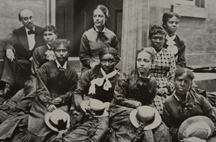| |

Home
|
|
| |
Books of the 20th Century Exhibition
An introduction to some publications that have shaped the field of education. |
|
|
|
|
|
|
| |
Curriculum Theorizing:
The Reconceptualists
by William Pinar (1947–), editor
Berkeley, CA: McCutchan Publishing Co., 1975.
|
|
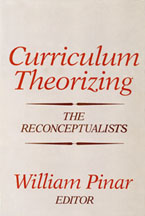
|
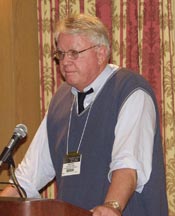 William Pinar, 2005
William Pinar, 2005 |
|
|
|
|
|
|
| |
“The point has never been about building monuments or traditions, it has been about tearing them down, allowing new ideas to emerge and take hold. . . . In doing so there has been what I call . . . some degree of ‘speculative excess,’ but that is the price to be paid. When respectability and caution rule the day, intellectual experimentalism is the casualty. In this I believe we [the Journal of Curriculum Theorizing] have succeeded, some critics would say to a fault.”
––William Pinar (1999, xiii)
Curriculum Theorizing: The Reconceptualists seemed to be a lightning rod for conflicting beliefs and controversy within and outside the field of curriculum studies—in the late 1970s and even today. While William Pinar pointed out, “There is no ‘Reconceptualist’ point of view, or even points of view” (Pinar, 1988, p. 7), contemporary textbook authors, then and now, continue to refer to an ideological movement that formed in the mid-1970s. When the essays of this collection are compared to articles from the late 1960s and early 1970s curriculum journals, a remarkable breadth of knowledge is displayed as well as a call for the redefinition of curriculum theory and foundations of education. |
|
|
|
|
|
| |
|
|
|
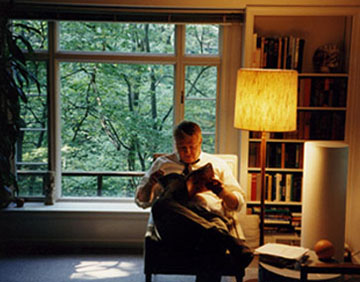
Reflections on Curriculum Theorizing by William Pinar
reprinted from the Museum of Education's Books of the Century Catalog
The 1973 Rochester Conference––the proceedings were published by McCutchan in 1974 as Heightened Consciousness, Cultural Revolution, and Curriculum Theory––seemed to be the start of something. A second conference was called for Xavier University in 1974, and a third would be held in 1975 at the University of Virginia. In this state of expectation I collected a book of essays that I hoped would help clarify what this “something” was. The book (I hoped) would function as a transitional statement from a field in crisis––Schwab had recently termed it “moribund”––to a field restructured and revitalized. I settled on the word reconceptualization to depict this paradigmatic shift, as it appeared to me that what was needed most was a rethinking of the basic concepts of the field.
There were, of course, historical precedents, including the genealogical line in which I found myself––Boyd Bode, Harold Alberty, Paul R. Klohr. Clearly, there was in the field both precedent and inspiration. In particular, my mentor, colleague, and close friend Paul Klohr continued to converse with me regarding many issues, large and small, concerning the state of the field. I shared with Paul each step of my planning for the book, and at some point asked him to co-edit it with me. He agreed, but as publication neared he withdrew his name. Since I was the assistant professor in need of promotion and tenure, he declared, I was the one who needed whatever professional credit the book would provide. In 1974, Paul was only six years from an early retirement, although I had no clue. He left Ohio State in 1980, but he hardly retired and has remained very much engaged intellectually with the field of curriculum studies.
I made two mistakes in the book. One, I used the word “reconceptualists” for the subtitle rather than “the reconceptualization.” That choice of words allowed some to misconstrue the movement as an ideologically unified set of individuals in personal and professional allegiance with each other with a definite and agreed-upon destination in mind. Nothing could be further from the truth, as I well knew. What the book presented was instead rather disparate work from unconnected (even hostile) individuals, but work that I felt would represent the foundation for a conceptualized field of curriculum in the United States.
The second mistake was also tactical. In using “critical” and “post-critical” I irritated the Marxists in the field. The distinction was accurate, but it did ensure a continuing rift between various figures in the new field.
Despite these problems, I would argue that overall the book did its job. The work I included did become foundational to the new field; many of those included have become major figures in the contemporary, yes, reconceptualized field. The autobiographical statements remain intriguing. Even the use of the gerund––“theorizing” to distinguish the work from “theory” that tried to be “scientific”––proved influential for many. The book sold steadily and only in the last decade went out of print. There is interest in re-issuing it.
William Pinar, Books of the Century Catalog, 2000, p. 112-113.
Craig Kridel, editor/arrayer (2000). Books of the Century Catalog (Columbia, SC: Museum of Education). |
|
|
|
|
| |
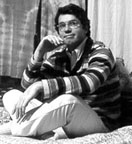
William F. Pinar, 1977
William F. Pinar: video footage from the
1976 Milwaukee Curriculum Theory Conference
“Responding to Elliot Eisner”
University of Wisconsin, Milwaukee
I wish to express great thanks to Alex Molnar, currently Research Professor at the University of Colorado Boulder, who not only arranged for the videotaping of the 1976 curriculum theory conference but, perhaps more importantly, kept this antiquated video material for years and years, ultimately donating the items to the Museum of Education where it has been refreshed for this web exhibition. Craig Kridel, Curator
|
Preface
“I look at this book in two ways. First, I see it as the presentation of work of major contemporary curriculum theorists. These theorists are not well known to many of you associated with the curriculum field, but they represent an avant-garde whose significance for the field will make itself more and more obvious as time passes. Second, I see the collection as a report of a movement just under way, an example of ‘work-in-progress,’ the theme and function of which at first challenge and then supplant traditional curriculum writing” (p. xi).
|
|
|
| |
|
|
|
|
|
|
|
|
|
|
|
|
|
|
|
|
|
|
Quote
“I propose yet another meaning of the word [curriculum], one stemming from its Latin root, currere. The distinction is this: current usage of the term appears to me to focus on the observable, the external, the public. The study of currere, as the Latin infinitive suggests, involves the investigation of the nature of the individual experience of the public: of artifacts, actors, operations, of the educational journey or pilgrimage.
“So understood, the field is not only an environment-producing discipline, involving the formulation of objectives, design, even criticism, as it is understood presently. It is a knowledge-producing discipline, with its own method of inquiry and its own area of investigation. Currere, historically rooted in the field of curriculum, in existentialism, phenomenology, and psychoanalysis, is the study of educational experience” (p. 400). 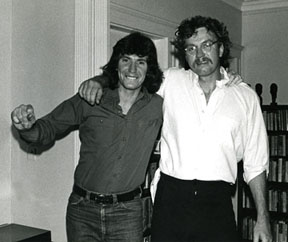
Henry Giroux and Bill Pinar, 1980
|
|
|
|
Contents
Curriculum Theorizing: The Reconceptualists by William Frederick Pinar, Editor (1947– ; University of Rochester). Berkeley, CA: McCutchan Publishing Co., 1975. [xiv; 452 p.; 24 cm.]
Preface
I. State of the Field
James B. Macdonald, Curriculum Theory
II. History and Criticism
Lawrence A. Cremin, Curriculum Making in the United States
Herbert M. Kliebard, Persistent Curriculum Issues in Historical Perspectives
Herbert M. Kliebard, Bureaucracy and Curriculum Theory
Herbert M. Kliebard, Reappraisal: The Tyler Rationale
Herbert M. Kliebard, Metaphorical Roots of Curriculum Design
III. Political and Methodological Criticism
Michael W. Apple, The Hidden Curriculum and the Nature of Conflict
Michael W. Apple, Scientific Interests and the Nature of Educational Institutions
John Steven Mann, Curriculum Criticism
John Steven Mann, A Discipline of Curriculum Theory
John Steven Mann & Alex Molnar, On Student Rights
Ross L. Mooney, The Researcher Himself
IV. Postcritical Reconceptualists
Dwayne Huebner, Curricular Language and Classroom Meanings
Dwayne Huebner, Curriculum as Concern for Man’s Temporality
Dwayne Huebner, The Task of the Curricular Theorist
Dwayne Huebner, Poetry and Power: The Politics of Curricular Development
James B. Macdonald, Curriculum and Human Interests
Maxine Greene, Curriculum and Consciousness
Philip Phenix, Transcendence and the Curriculum
William F. Pilder & William J. Murphy, Alternative Organizational Forms, Cultural Revolution, and Education
William Pinar, Sanity, Madness, and the School
William Pinar, The Analysis of Educational Experience
William Pinar, Currere: Toward Reconceputalization
William Pinar, Search for a Method
George Willis, Curriculum Theory and the Context of Curriculum
Francine Shuchat Shaw, Congruence |
|
|
|
|
|
|
|
|
|
|
|
|
|
|
|
|
|
|
|
|
|
|
|
|
|
|
 |
|
|
|
|
to return to the
Books of the 20th Century Exhibition
|
|
|
|
|
